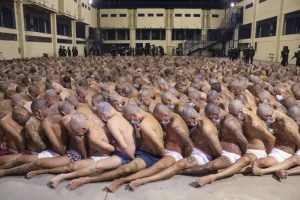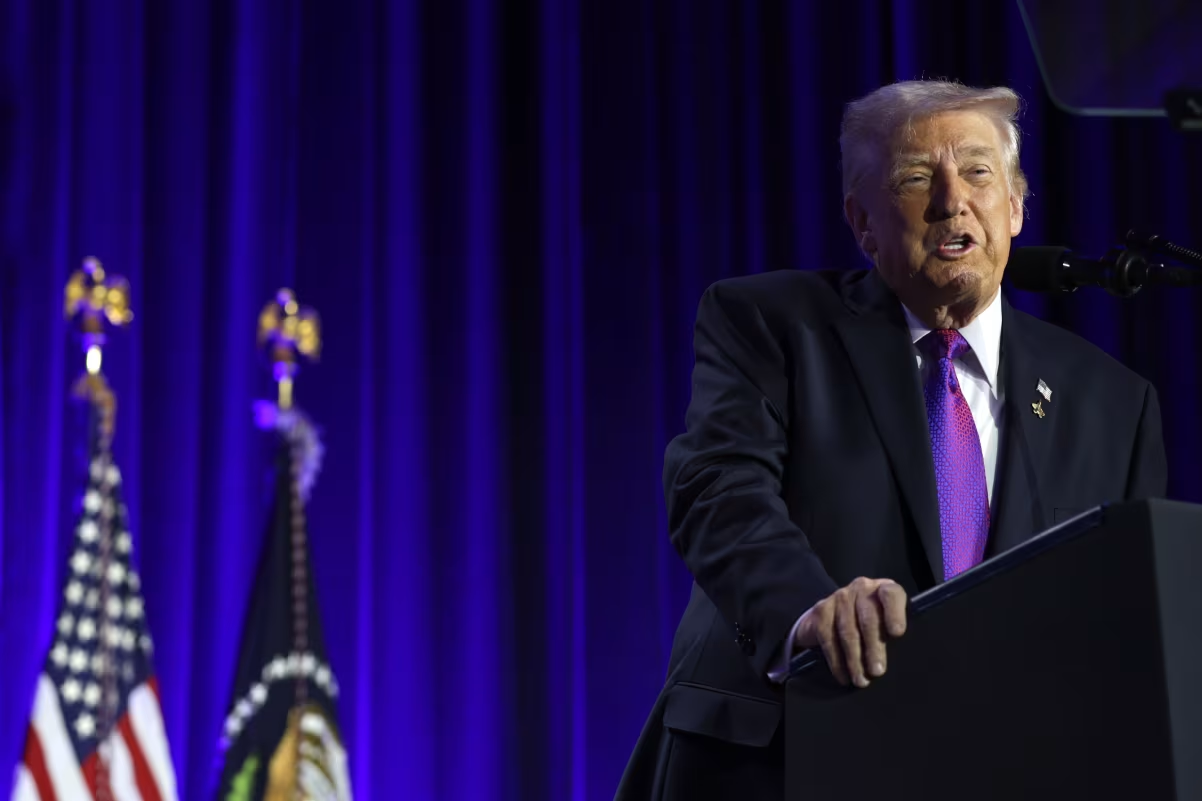
In 2025, the Trump administration implemented a series of aggressive immigration measures that have sparked widespread legal, political, and civil rights concerns. Central to the administration’s approach is the invocation of the 18th-century Alien Enemies Act.
Framed as a response to an “invasion” by the Tren de Aragua gang, President Trump’s executive order “Protecting the American People Against Invasion” bypasses congressional oversight and traditional judicial processes. Critics argue this move represents a dangerous expansion of executive power, potentially undermining constitutional protections such as due process and freedom of speech.
Notable cases like the deportation of Kilmar Abrego Garcia, the detention of Mahmoud Khalil, and legal challenges from foreign students reflect the human impact of these policies. Immigration judges and civil liberties organizations have raised alarms about the erosion of legal safeguards and the use of rhetoric that frames migrants as national security threats.
To get a better understanding of the current situation, Wyoming Star interviewed historian and peace activist David Swanson, executive director of World BEYOND War and a long-time critic of the militarization of public policy.
Wyoming Star: As a historian and peace advocate, how do you interpret the original intent of the Alien Enemies Act, and how does it contrast with how it’s being used today?
David Swanson: The Alien and Sedition Acts were laws created in 1798 to carve out exceptions to the 1791 Bill of Rights by banning statements against the government, making it harder to become a citizen, allowing the imprisonment and deportation of non-citizens, and—the bit that is still on the books (albeit, I think, pretty clearly unconstitutionally)—allowing the imprisonment of non-citizens during wars or “invasions” or “predatory incursions.”
The intent was supposedly to be able to urgently halt the malicious work of foreigners working for mass killing, mass destruction, or the undemocratic overthrow of the government. Of course, from the start that was not the actual function, and new laws were not needed for such purposes. Anyone guilty of such crimes could always have been arrested and charged with the protections of the Bill of Rights respected. Instead, people’s rights have been abused, most famously by imprisoning Japanese-Americans during WWII, an act that the US government declared in 1988 to have been based on race prejudice and war hysteria. A monument within sight of the US Capitol promises not to repeat such horrors.

War has always been the primary eroder of civil liberties, and that threat is now permanent because the US government considers it to always be wartime.
The US public lacks the education and the activism to make real promises to learn from past mistakes, and the Bill of Rights would never make it out of committee if introduced today as new legislation.
Wyoming Star: The administration’s invocation of the Alien Enemies Act specifically targets the Tren de Aragua gang. Is this a legitimate security response or a cover for broader anti-immigrant crackdowns?
David Swanson: Is there a poll of the US public finding that people feel more secure? Many feel far less secure, knowing that they might be kidnapped and sent to a foreign prison. President Trump is already talking about going after citizens, and not just non-citizens.
It matters little what the law says when the essence of this law is to violate the Constitution and remove Congress and the judiciary from the process.
Already someone snatched and imprisoned “by mistake” is simply labeled a “criminal” and kept imprisoned (or worse). Obviously, the United States has not been made subject to a war, invasion, or predatory incursion. And the officials violating the Fourth, Sixth, Seventh, Eighth, and Ninth Amendments here are also dragging down the First Amendment by claiming the right to engage in these abuses based on what someone has supposedly said (even though in every known case the evidence suggests that they have not said the things they are accused of having said).
Wyoming Star: With President Trump bypassing Congress through executive orders like the “Protecting the American People Against Invasion” order, do you think this sets a dangerous precedent for executive overreach?
David Swanson: This is an extension of the ongoing, centuries-long shifting of power from Congress (and courts) to the executive. The latest burst of acceleration began with President George W. Bush and has been augmented and made more firmly established by Presidents Obama, Trump, and Biden. While Trump may now be held in contempt by a court, presidents have not been held accountable, and the impeachment process has been rendered useless. Congress could still choose to act. It’s just become hard to even imagine it actually doing so. Roughly half of Congress pretty strictly obeys whoever is president, based on political party, and the other half generally—and especially when it is the Democrats—openly advocates inaction or feigns opposition.

Wyoming Star: What dangers do you see in framing immigrants and asylum seekers as “invaders” or “enemy combatants”? How does this rhetoric affect both policy and public opinion?
David Swanson: It’s creeping fascism and will remain so until everyone is ready to call it simply “fascism,” at which point it may be too late.
Wyoming Star: What role does xenophobia or political opportunism play in the framing of these immigration policies as matters of “national security”?
David Swanson: It’s all about xenophobia. The New York Times has a big article today on global migration. It shows the advantages of allowing freedom of movement within Europe or South America. But why not globally? Why not save the small fortune spent on borders and spend some of it on educating the people who are spending so much on it? Why put a halt to harmful tariffs except for China? Why is Trump able to label groups of people “criminals” without suggesting anything actually criminal about them? It’s all about xenophobia—and it’s helped by the fact that nationalism is the one remaining acceptable form of bigotry for liberals too. The rallies to protest Trump with chants of “Hands off” this and that other useful public service also shouted for “hands off” NATO while making no mention of Palestine, Ukraine, Greenland, or Panama.
Wyoming Star: From Kilmar Abrego Garcia to Mahmoud Khalil, we’ve seen controversial deportation cases tied to these new powers. What concerns do these raise about due process and legal safeguards?

David Swanson: Not as many as the fact that all the other cases are thereby made uncontroversial.
Wyoming Star: How do the current Trump policies impact America’s global image, especially as a self-proclaimed defender of human rights?
David Swanson: Polling has suggested for years that in most parts of the world, the US government is seen as the greatest threat to peace. Meanwhile, the United States remains the top destination for immigration because people tend to assume the United States will attack anywhere other than itself. That assumption is in trouble.
Wyoming Star: What long-term implications for civil liberties and democratic norms in the US can current Trump policies have?
David Swanson: An end to the pretense of representative government.
Wyoming Star: How do you think mainstream media coverage contributes to either the acceptance of or resistance to Trump’s immigration policy?
David Swanson: There are not enough bolds or all-caps to meet the need, nor even the willingness to search for the words. The media waits to oppose Trump’s outrages until Democrats do so, which is like waiting to notice the iceberg until the ship is vertical.
Wyoming Star: Do you see potential for legal, legislative, or grassroots pushback that could reverse these policies?
David Swanson: Yes. It starts with creative, strategic, nonviolent public pressure, disruption, sit-ins, general strikes, and compelling action at local, state, national, and international levels.










The latest news in your social feeds
Subscribe to our social media platforms to stay tuned